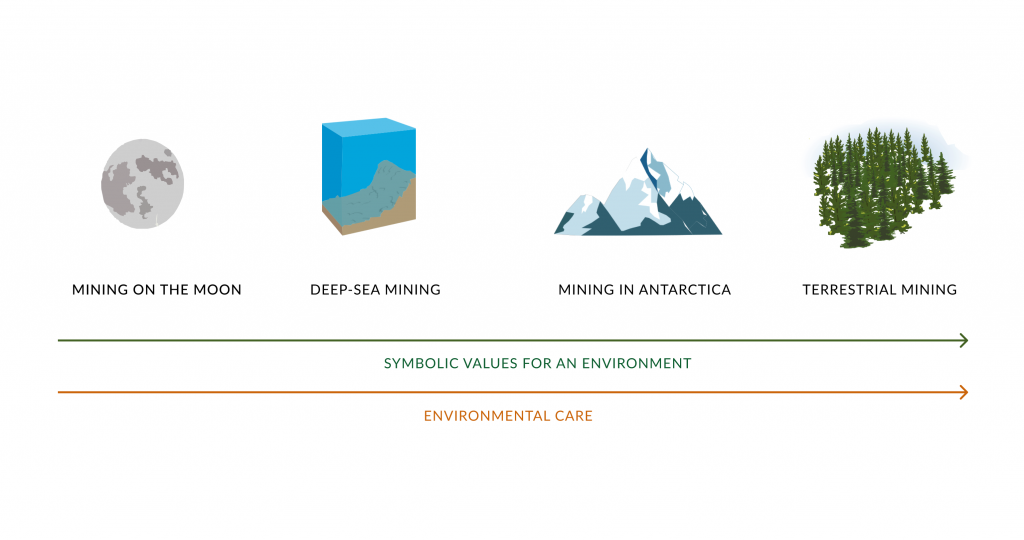Figure above: Distribution of the respondents’ symbolic value scores for the different environments (scores greater than 0 indicate positive symbolic values).
Authors: Laura Kaikkonen and Ingrid van Putten
The increasing need for metals and rare earth elements is fuelling interest in deep sea mining, with fast advancing technologies now granting access to even the deepest parts of the ocean. Encompassing the ocean below 200 meters, the deep sea is out of reach for most of us and has long been considered out of sight, out of mind. Although research suggests that deep-sea mining could cause significant damage to marine ecosystems, knowledge of the risks does not ensure people will be concerned about them. As public views can significantly affect development of human activities and conservation, we set out to ask whether people care about the deep sea.
To study how people value the deep sea and how much they would care about mining activities occurring there, we conducted an online survey on people’s knowledge of the deep sea and their views on exploiting it. We were particularly interested in the role of symbolic values, i.e. the emotions, moods and meanings an environment evokes, as an element affecting people’s care. To get a broader look at how remoteness influences whether people care about an environment, we compare the deep sea to three other environments: Antarctica, remote terrestrial environments, and the Moon.
Despite its remoteness, we found that the deep sea does matter to a lot of people involved in our study, with the vast majority of respondents stating to care a lot or very much about human activities harming the deep sea. Although people knew even less of the deep sea than the Moon, they perceive it likely that mining will take place there in the future. Interestingly, people’s knowledge about an environment had little to do with how much they care about it. In turn, we find that the emotions an environment evokes are much more important in predicting care for an environment.
These findings refute the idea that because the deep sea is perceived as dark and scary (as widely portrayed in popular culture), people would not care about the deep sea. While the deep sea was considered scary, it was also viewed as the most exciting of the four environments. Therefore, while it is important to increase public awareness of the oceans, our results suggest that we must also better acknowledge the role of emotions in driving people’s care for the oceans to look after deep-sea environments in face of increasing human activities. Encouragement to grow stronger connection and greater awareness of the deep sea to enhance feeling of care and nurture deep-sea stewardship will be crucial for equitable and sustainable ocean governance.
Read more here
